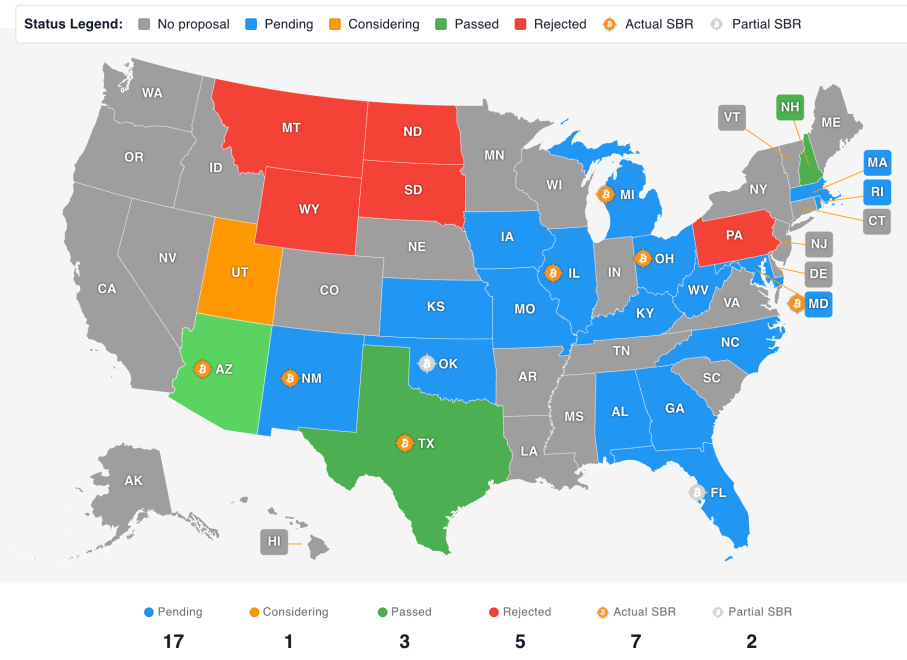Ohio Goes Full Crypto: State Approves Vendor for Bitcoin Payments in Landmark Adoption Move
Ohio just flipped the switch on mainstream crypto adoption—and Wall Street bankers are scrambling for their Bloomberg terminals.
BREAKING: STATE TREASURY GREENLIGHTS BITCOIN PAYMENTS
The Buckeye State officially approved a vendor to process cryptocurrency payments for state services, effectively bypassing traditional banking rails. Tax payments, license fees, and government services now join the digital asset revolution—no middlemen required.
CRYPTO GOES LEGIT IN HEARTLAND AMERICA
This isn't some Silicon Valley experiment. Ohio's move signals a tectonic shift in how governments interact with digital currencies. The vendor selection process wrapped with state-level due diligence that would make any compliance officer nod approvingly.
ACTIVE VERBS ONLY DEPARTMENT
The system cuts transaction times from days to minutes, slashes processing fees that normally eat into public coffers, and positions Ohio as the nation's most crypto-forward state government. Traditional payment processors just watched their Midwest expansion plans evaporate.
BULLISH ON MAIN STREET ADOPTION
While New York hedge funds debate theoretical use cases, Ohio's practical implementation demonstrates blockchain's real-world utility. The state treasury department operates with the same scrutiny as any financial institution—just without the velvet ropes.
ONE CYnical Finance Jab
Wall Street spent a decade dismissing crypto as a fringe asset class. Now state governments are implementing it while investment banks still can't agree on custody solutions. Maybe those MBA programs need a blockchain module.
Ohio's move doesn't just validate cryptocurrency—it demonstrates how decentralized technology can streamline government operations. Other states will follow. The question isn't if, but how fast.
Ohio To Accept Payments In Bitcoin
According to a recent official announcement, the Ohio Board of Deposit has selected a vendor to enable the acceptance of cryptocurrency payments – including BTC – for state fees and services.
It is worth highlighting that Ohio’s move to legitimize crypto payments follows a proposal that was passed by the board in May 2025, which designated cryptocurrencies as an authorized financial transaction device.
Commenting on the development, Ohio Secretary of State Frank LaRose said that the Ohio Board of Deposit’s decision to accept crypto payments will aid Ohio in maintaining its position as a leading state for business. LaRose added:
There’s a reason why we now rank among the top five states in the nation to do business. It’s because we’re not afraid to embrace the tools, trends and technologies that incentivize job creators to come here. My office processes hundreds of thousands of financial transactions each year, and we’ve heard a growing demand for a cryptocurrency payment option. I’m excited and ready to be the first to provide it to our customers.
With this development, Ohio has become the fourth US state to go ahead with allowing payments in digital assets for government services. Other states that offer similar facilities are Colorado, Utah, and Louisiana.
To recall, in April 2025, Colorado became the first US state to accept tax payments in cryptocurrencies. At the time, the state’s Governor, Jared Polis, remarked that Colorado residents can use PayPal’s Cryptocurrency Hub to pay taxes with crypto.
Similarly, Utah’s Senate passed House Bill 230 earlier this year to establish several custody protections for the state’s crypto miners. Among other things, the Bill provides the right to mine Bitcoin, run a node, develop software, and participate in staking without regulatory overreach.
Are State BTC Reserves Next?
While Ohio has become the latest state to accept cryptocurrencies for government fees and services, there are several other states currently in contention to create their own strategic Bitcoin reserves.
The following chart shows the current status of strategic bitcoin reserve plans across different states in the US. Currently, only Texas, Arizona, and New Hampshire have approved state-level strategic Bitcoin reserve legislation.

On the contrary, states like Montana, North Dakota, South Dakota, Pennsylvania, and Wyoming have rejected the proposal of having a strategic Bitcoin reserve. Meanwhile, 16 states are still in the proposed stage. At press time, BTC trades at $111,121, down 2.1% in the past 24 hours.


